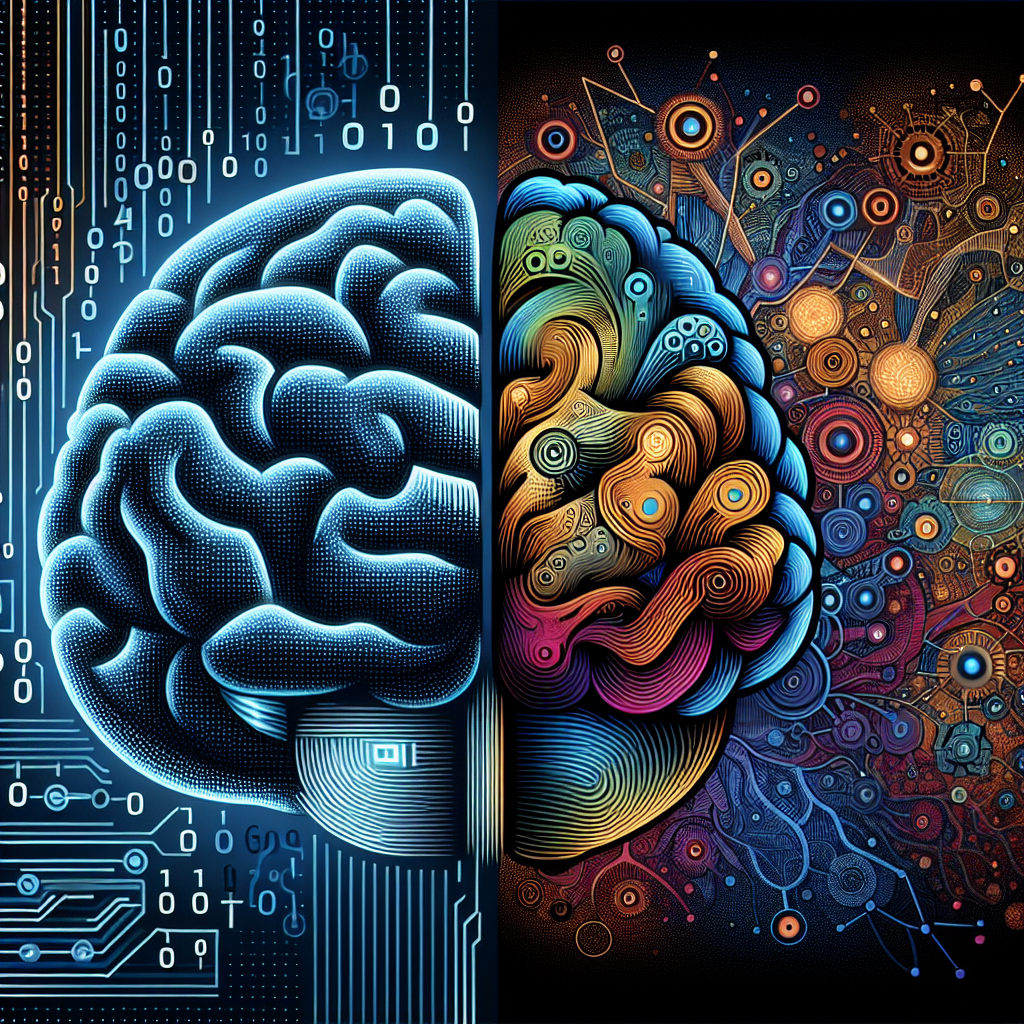Artificial General Intelligence (AGI) is the concept of a machine that possesses the ability to understand, learn, and apply knowledge in a way that is indistinguishable from human intelligence. This type of AI is often referred to as “strong AI” or “human-level AI” because it is capable of performing any intellectual task that a human can.
The human brain is often considered the most complex and powerful computer in existence, with an estimated 86 billion neurons and trillions of connections between them. It is capable of processing vast amounts of information, making complex decisions, and learning from experience. AGI researchers have long been interested in understanding the inner workings of the human brain in order to replicate its capabilities in artificial intelligence systems.
In this article, we will explore the relationship between AGI and the human brain, including the challenges and limitations of creating AI that can truly mimic human intelligence. We will also discuss the ethical implications of developing AGI and the potential impact it could have on society. Finally, we will address some common questions and concerns surrounding AGI and its implications for the future.
Understanding the Human Brain
The human brain is a complex organ that is responsible for controlling all of our thoughts, emotions, and actions. It is made up of billions of neurons, which are specialized cells that transmit electrical signals throughout the brain. These neurons are connected by synapses, which allow them to communicate with each other and form complex networks.
One of the key features of the human brain is its ability to learn and adapt to new information. This process, known as neuroplasticity, allows the brain to reorganize itself in response to new experiences and stimuli. This is what enables us to learn new skills, form memories, and solve complex problems.
The human brain is also capable of performing a wide range of cognitive tasks, from simple calculations to creative thinking. It can process vast amounts of information in parallel, allowing us to make decisions quickly and efficiently. This ability is what sets human intelligence apart from other forms of animal intelligence.
Challenges in Creating AGI
Creating an artificial intelligence system that can match the capabilities of the human brain is no easy task. There are several challenges that researchers face when trying to develop AGI, including:
1. Complexity: The human brain is incredibly complex, with billions of neurons and trillions of connections between them. Replicating this level of complexity in a machine is a daunting task, requiring advanced algorithms and computational power.
2. Understanding: Despite decades of research, scientists still have a limited understanding of how the human brain works. There are many unanswered questions about how neurons communicate, how memories are stored, and how intelligence emerges from the brain’s structure.
3. Ethical concerns: The development of AGI raises a number of ethical concerns, including the potential for AI systems to surpass human intelligence and pose a threat to humanity. There are also concerns about the impact of AI on the job market, privacy, and security.
4. Bias and fairness: AI systems are only as good as the data they are trained on, and there is a risk that biased or incomplete data could lead to biased or unfair decisions. Ensuring that AI systems are fair and unbiased is a major challenge for researchers.
Despite these challenges, researchers are making progress in developing AGI systems that can perform a wide range of cognitive tasks. Some AI systems are already capable of matching or even surpassing human performance in certain domains, such as playing chess or recognizing objects in images.
The Future of AGI
The development of AGI has the potential to revolutionize many aspects of society, from healthcare and education to transportation and entertainment. AI systems could help us solve complex problems, make better decisions, and improve our quality of life.
However, the rise of AGI also raises a number of concerns about the impact it could have on society. There are fears that AI systems could replace human workers, leading to widespread unemployment and economic instability. There are also concerns about the potential for AI systems to be used for malicious purposes, such as surveillance or warfare.
To address these concerns, researchers are working to develop AI systems that are safe, reliable, and transparent. They are also exploring ways to ensure that AI systems are aligned with human values and goals, so that they can be used to benefit society rather than harm it.
FAQs
Q: Will AGI ever surpass human intelligence?
A: While it is difficult to predict the future of AGI, many researchers believe that it is possible for AI systems to surpass human intelligence in certain domains. However, there are still many challenges to overcome before AGI becomes a reality.
Q: What are the ethical implications of developing AGI?
A: The development of AGI raises a number of ethical concerns, including the potential for AI systems to surpass human intelligence and pose a threat to humanity. There are also concerns about the impact of AI on the job market, privacy, and security.
Q: How can we ensure that AGI is used for good?
A: To ensure that AGI is used for good, researchers are working to develop AI systems that are safe, reliable, and transparent. They are also exploring ways to ensure that AI systems are aligned with human values and goals, so that they can be used to benefit society rather than harm it.
In conclusion, the relationship between AGI and the human brain is a complex and fascinating topic that raises many questions and challenges. While creating AI systems that can match the capabilities of the human brain is a daunting task, researchers are making progress in developing AGI systems that can perform a wide range of cognitive tasks. As we continue to explore the limits of artificial intelligence, it is important to consider the ethical implications of developing AGI and to ensure that AI systems are used for the benefit of society.

